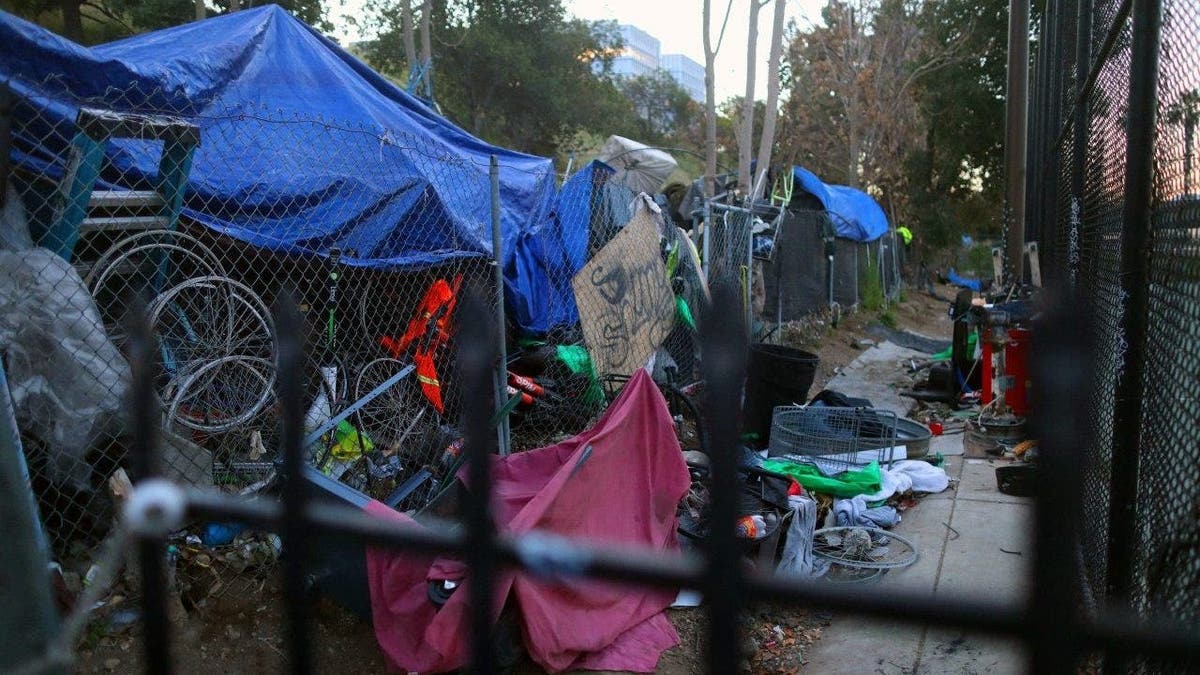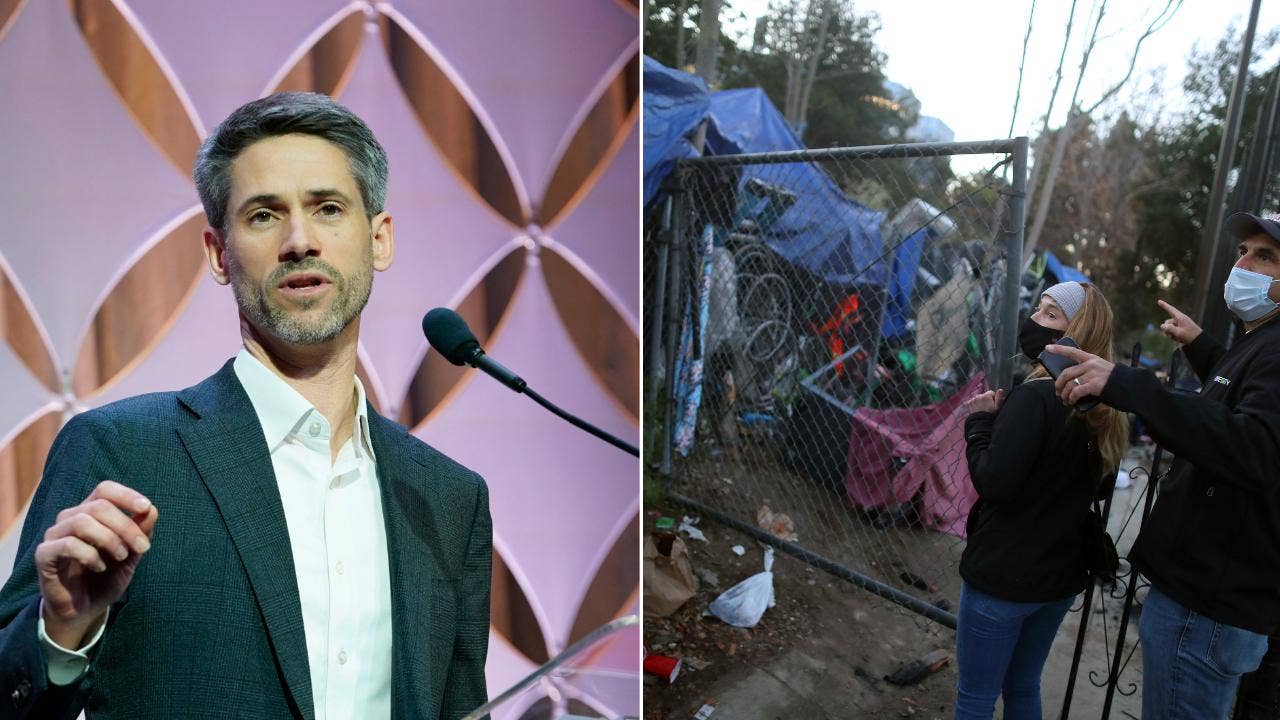A Democratic mayor fed up with the way homelessness has proliferated in his state has proposed a bold new solution for his city: jailing homeless people who refuse housing services three times.
“There’s an extremely vulnerable subset of folks who refuse those options, no matter how nicely designed they are,” San Jose Mayor Matt Mahan told Fox News Digital in an interview Wednesday. “That speaks to me of a persistent challenge we face with addiction and mental illness on our streets, and we’ve sort of built a system that biases toward helping those who want help, while turning a blind eye to those who are trapped in a cycle of addiction. And the reality is it’s deadly. We’re sentencing people to die on the streets.”
The move comes as California Gov. Gavin Newsom placed the onus on local governments last year to get homeless encampments in some of the state’s most populous cities cleaned up. In San Jose alone, roughly 6,000 people are homeless, a stark contrast to the city’s image as the heart of Silicon Valley’s tech boom.
NEW LAW CLAMPS DOWN ON HOMELESS AS BLUE CITY ADVOCATE ADMITS THE ‘FRUSTRATION’ IS JUSTIFIED
Mahan offered the proposal last month after observing how homeless people in his town have avoided the housing services offered as well as talking with recovery groups to find out what most commonly breaks the cycle of addiction.
A new study from the University of California San Francisco’s Benioff Homelessness and Housing Initiative (BHHI) last month found that approximately 37% of California’s homeless population are regular illicit drug users. The study also found that 48% have complex behavioral health needs, encompassing regular drug use, heavy drinking, hallucinations or recent psychiatric hospitalization. Additionally, 66% reported experiencing mental health issues such as depression, anxiety, hallucinations or cognitive difficulties.
“I think the appropriate response is to say, you’ve got to, at a minimum, come indoors,” Mahan said. “Camping can’t be a choice when we’re offering housing. And if you’re so caught in the throes of addiction that you can’t say yes to interim housing or dignified shelter, we need to create accountability.”
Mahan said “it’s the threat of consequence, it’s the intervention, it’s disrupting the pattern” that actually propels people who “are most susceptible to addiction to break out of that cycle.”
NEWSOM MAKES GENERIC $24 NARCAN AVAILABLE AFTER PRO-DRUG POLICIES PUSH ‘SAFE’ USE

While Mahan’s proposal is a departure from the progressive flank of his party, a poll from Politico and UC Berkeley’s Citrin Center this month indicates that 37% of voters, including political experts, support arresting homeless people if they refuse shelter. As the San Francisco Chronicle has reported, San Francisco and Sacramento are thus seeing an uptick in homeless people being arrested over illegal encampments in the wake of City of Grants Pass v. Johnson, where the Supreme Court ruled municipalities have the power to make public camping illegal.
State lawmakers this session are also considering a bill brought forth by Sen. Sasha Renée Pérez, a Los Angeles County Democrat, which would ban measures that result in criminal penalties for refusing housing.
But to Mahan, who campaigned on reducing homelessness before taking office in 2023, it’s not a “partisan issue.”
“I’m just interested in figuring out what works,” he said. “And clearly, what we’re doing on homelessness in California is not working. We’re about… nearly half of the nation’s unsheltered population, so the status quo is failing, and the sooner we acknowledge that the status quo on homelessness in California is failing, the sooner we will embrace solutions that work to get people indoors and connected to services.”
California’s “Housing First” model, adopted statewide in 2016, prioritizes providing permanent housing to homeless individuals without preconditions such as sobriety or participation in treatment programs as prerequisites. Critics of the policy argue that offering housing without mandatory treatments has only made the problem worse and more expensive, as some estimates of building a single unit reach up to $1.2 million in cities like San Francisco.
SCOOP: NEWSOM ASKS WORLD LEADERS TO EXEMPT CALIFORNIA EXPORTS FROM RETALIATORY TARIFFS

Of that policy, Mahan said, “We have to meet people where they are.”
“The insight we have taken from housing first, that I think is very much worth preserving, is that we’ve designed these interim housing communities to be low barrier. We allow people to bring their pets, their partner, their belongings. We do not have a strict sobriety requirement, though I do believe that sober living environments absolutely should be an option and one that the public sector invests in.”
Read the full article here




